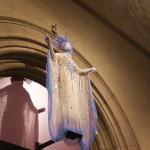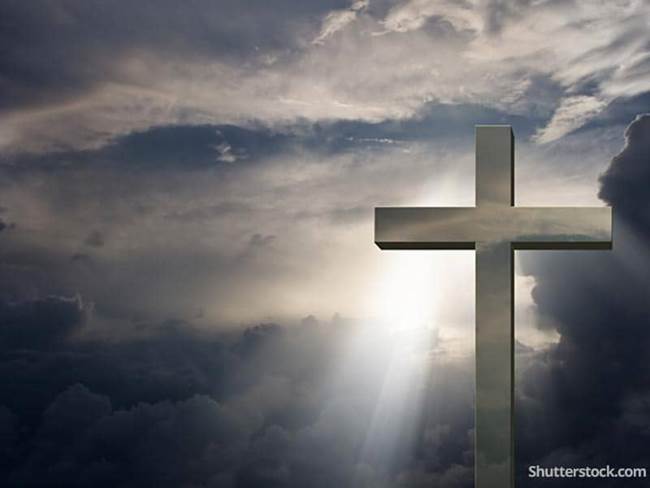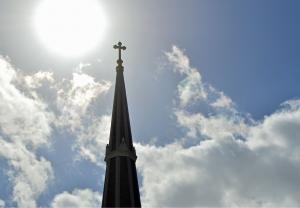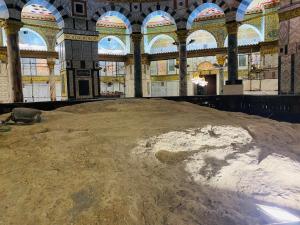There is an image the Southern Baptist Convention cannot afford to have taken at their annual meeting this year. It’s the image of Southern Baptist men denying access to a Southern Baptist pastor because of her female skin.

The denomination officially apologized in 1995 for its history of discrimination and segregation based on the color of one’s skin. But they staunchly reserve the right to this day to discriminate based on gender.
The Tennessee Baptist Convention (TBC) exercised this religious “right” last fall when they refused to seat messengers from Jefferson City’s First Baptist Church—a church with a 140-year relationship with the TBC—because they hired a woman pastor.
And unfortunately for them, someone took a picture.

The Power of Pictures
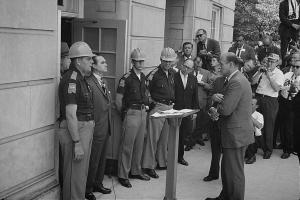
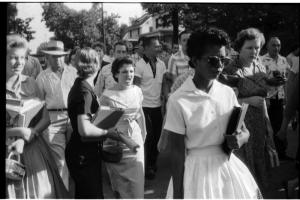
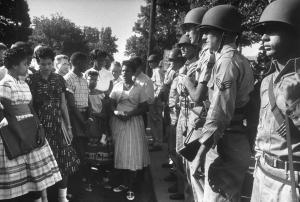
Who can forget these iconic civil rights photos? Governor George Wallace refusing black students entrance to the University of Alabama. The Little Rock Nine escorted to school by an armed guard to desegregate Little Rock Central High.
These are photographs that defined a movement and a moment in national history.
A moment when the tide was about to change.
Unfortunately, that kind of change never comes without a fight.
Ellen Di Giosia says she’s not looking for a fight at all. But as all women pastors in the Southern Baptist tradition find, the fight has come to her.
Because for a female pastor, just like the Little Rock Nine, simply showing up is considered an act of war.
Black students like Elizabeth Eckford understood this all too well. When she showed up for school at Little Rock Central High, she was confronted by Arkansas National Guardsmen—rifles raised, waving her off the property.
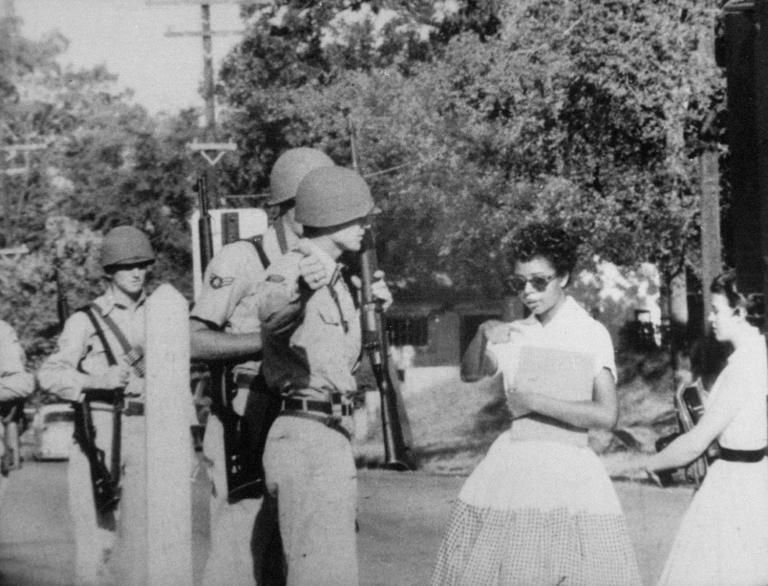
Granted, Di Giosia wasn’t met with rifles. Her denial was executed with a little more finesse. She and messengers from her church were given a packet that included everything except messenger ballots.
She was then allowed to sit with her church representatives in the TBC annual meeting, where they proceeded to debate whether she and her 181-year-old Southern Baptist church should be disfellowshipped due to her female-ness.
It was. Though a few defended her, the overwhelming consensus was to reject her.
Not because she’s evil. Not because she’s committing a sin.
Because she’s a woman.
And not in 1957. In 2017.
From Baptist Press:
“Randy C. Davis, president and executive director of the Tennessee Baptist Mission Board, also spoke to media following the vote, describing Di Giosia as ‘a good and godly sister in Christ.’
‘There was just a theological difference in how we interpret Scripture that relates to the female being the senior pastor of a local church,’ Davis said.”
Being “good and godly” isn’t enough for the Tennessee Baptist Convention.
For these qualities to count, they must be housed in non-female skin.
The messengers of the TBC, therefore, felt it their righteous duty to “civilly” stand in Di Giosia’s face and tell her to take a hike.
Race and Gender: The Southern Baptist Convention Powder Keg
It’s notable that an SBC entity is so eager to let go of a church like FBC Jefferson City at a time when the SBC faces accelerating losses in membership and baptisms.
Divisions in the denomination run deep, and this year’s annual meeting presents a powder keg of issues. One major explosion could break this once-formidable institution into too many factions to scrape together a voting bloc.
Race was the presumptive spark that could start the fire in June.
After being humiliated in the press last summer for rejecting a resolution condemning the alt-right (which passed after pressure generated from national media coverage), one would think SBC leaders would steer for smoother waters.
One would think.
In a bombshell, the SBC Committee on Nominations released a report in April revealing a slate of nominees that were 97% white. Reactions ranged from discouragement to talk of leaving the denomination.


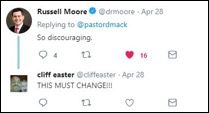
What no one expected, however, was that the #MeToo moment would visit the SBC, taking down several key denominational leaders in a matter of weeks with revelations of abuse, sex crimes, moral failings and cover-ups.
Headlines like “The Baptist Apocalypse” and “The Wrath of God Poured Out” feel like harbingers of doom heading into the annual meeting.
With the eye of the press trained on them, the embattled denomination enters an impossible crucible of judgement—and like it or not, judged they will be.
Not only on racism, which they can at least denounce. But on the silencing of women, to which they are doctrinally committed.
The difference is that women are no longer buying it. Their voices are rising in a swell that SBC men can neither control nor resist.
Like it or not, this army of female voices is bringing their most powerful leaders down.
What to Do with A Woman?
So here’s a scenario that should chill Southern Baptist leaders to the bone.
FBC Jefferson City and the SBC are still affiliated according to both of their websites.
What if Pastor Di Giosia (whose church has a dual affiliation with the Cooperative Baptist Fellowship) attends the CBF General Assembly in Dallas next week— less than a mile from the SBC Annual Meeting?
Let’s just say she decides her church needs clarity about where it stands with the SBC. All she has to do is stroll down the street and up to the SBC credentials desk.
She will undoubtedly be met by men with the conviction of George Wallace, who will “civilly” instruct her to get back in her place.
And someone will undoubtedly be there to take what could be the next great civil rights picture.
The one where the men of the SBC—currently under fire for sexual abuse, spiritual abuse, and covering up the rape and assault of women— stand in the face of a “good, godly woman” and say, “No Access.”
A picture that will be seen around the world.
Who knows? It may even come to be known as the straw that broke the SBC’s back—the woman who brought down America’s largest Protestant denomination.



